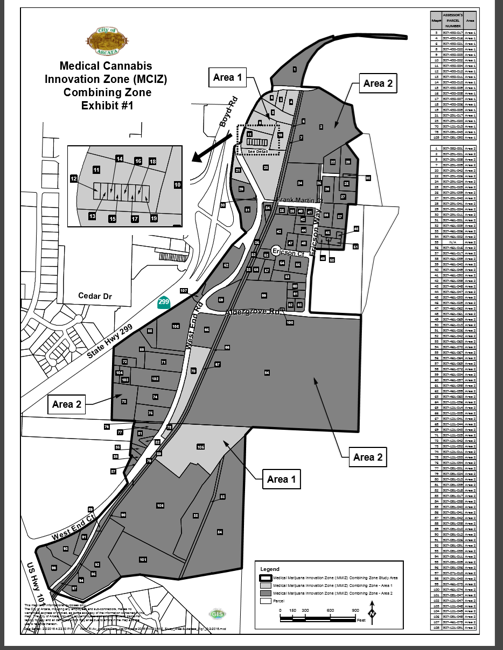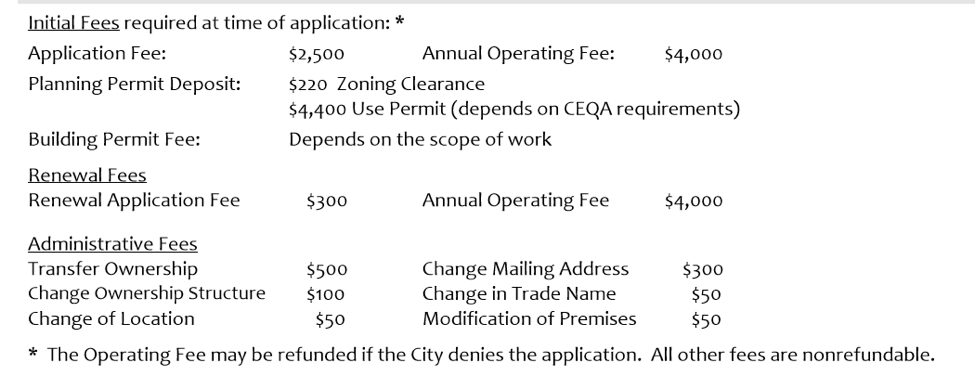|
Currently, the City of Arcata, CA is accepting applications to obtain a permit for Commercial Cannabis Activity permit (CCAP). This application process began April 1, 2016. Anyone interested in a medical cannabis business within the City must go through the process outlined below: Step 1: Identify Permit Type Step 2: Gather Application Information Step 3: Write Operational and Logistical Plans Step 4: Submit Application to Initiate the Approval Process Step 1: Identify Permit Type: There are eight types of permits under the City’s CCAP process defined by the type of medical cannabis business. The following are the permit types: Cultivation (the chart below outlines the cultivation standards), Manufacturer 1 (nonvolatile solvents), Manufacturer 2 (volatile solvents), Testing Laboratory, Dispensary, Distributer, Transporter and Delivery. Cultivation Activities Defined by the Medical Cannabis Regulation and Safety Act (Note: Permits are for specific locations where the business operates, more than one location for the same business will require separate permits) Step 2: Application information: Full Arcata City Applications are available on the city website. The applications must include the following information:
Parking compliant with city regulations should be addressed in the site plan as well.
Step 3: Write Operational and logistical plans: All applications are required to include a full outline regarding how your marijuana business will operate. The following items must be included in your plans:
Other information including proposed activities, average amount of production and source of cannabis must be included in the operations plan.
Security breaches required to addressed as part of the security plan. The Arcata Police Department must be notified within 24 hours of noticing a security breach. In section 6.f of Exhibit A Resolution 167-29, the City defines the following as security breaches:
Step 4: Submit Application to Initiate the Approval Process:
|




